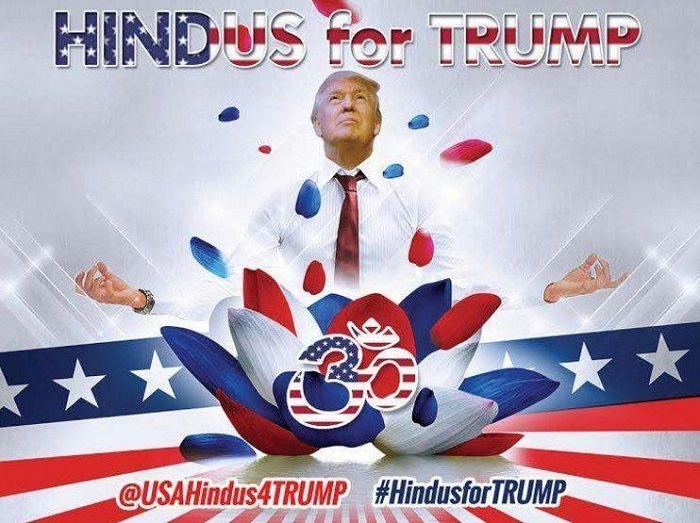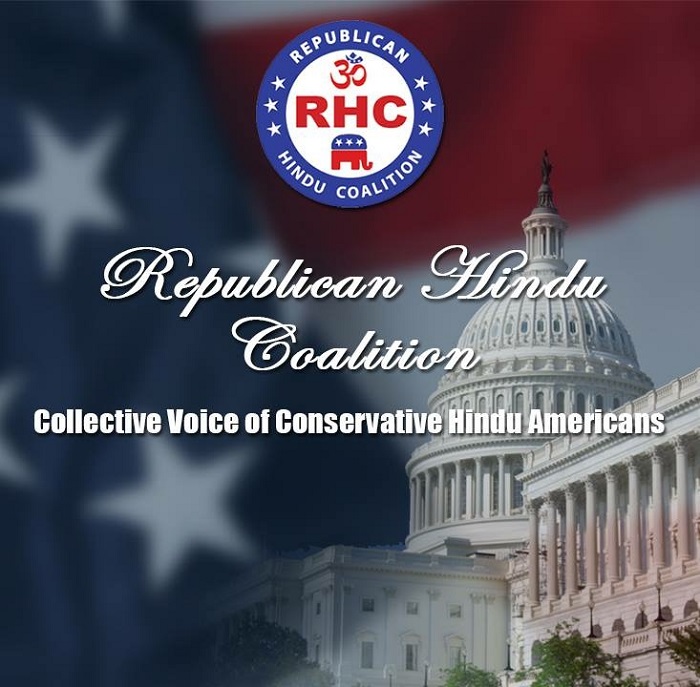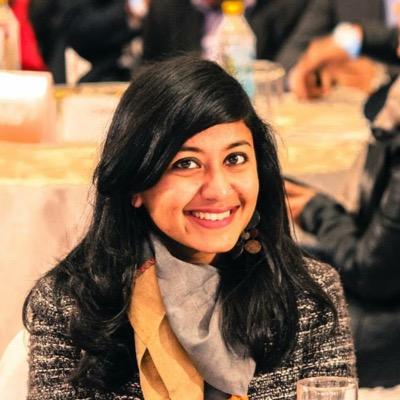Will India's rightward turn help the Republican Party get Indian-American votes?

Last November, the Hyatt Regency next to Capitol Hill in Washington D.C. hosted over 150 members of the wealthy Indian-American community. The man behind the event, Shalabh 'Shaili' Kumar, who owns AVG Advanced Technologies, an electronics company with an annual turnover of $112 million, walked in with former House Speaker Newt Gingrich.
Six Senators and 15 Congressmen were also present, including prominent Republicans like Senate majority leader Mitch McConnell, Chairman of the House Rules Committee Pete Sessions and Chairman of the House Foreign Affairs Committee Ed Royce.
Also read - Why does, Donald Trump love India's growth story but hate Indians?
A Hindu priest on the stage recited religious verses as Gingrich, Kumar and Sessions lit traditional Indian lamps. They were inaugurating the Republican Hindu Coalition, coinciding it with the festival of Diwali.
Gingrich, the RHC's Honorary Chairman, said the organisation "could literally change history". He praised Prime Minister Narendra Modi and warned against the dangers of Pakistan's nuclear ambitions. He was briefly interrupted by Kumar, who was heard on the microphone asking him to talk about the United States resuming the sale of F-16 jets to Pakistan, something India has long lobbied the US against. Gingrich promptly said this decision should be "reviewed carefully."
Senator McConnell was more direct than Gingrich, telling the gathering, "Believe me, it's your natural home and we welcome you."
Indian-Americas are among the richest communities; median income $88,000, national average is $49,800
The three-million-strong Indian-Americans constitute one of the richest immigrant communities with a median income of $88,000 as against the national average of $49,800. In 2010, nearly 70% of them had college degrees, more than double the rate for the overall population. Rough estimates suggest that at least 30% of the community comes from Gujarat, most of whom are entrepreneurs. Indian-Americans place a premium on family values, are socially conservative and religious as well.

All of this would make them natural allies of the Republican party but that hasn't happened through the years.
Modi effect?
Instead, they have been the most left-liberal among Asian-Americans. In a 2014 survey of Asian-American voters by the political scientist Karthick Ramakrishnan, some 47% of Indian-Americans identified themselves as Democrats, only 10% as Republicans and the rest as independent.
This trend continued even in their choice of Congressmen, with 58% preferring a Democrat and 18% choosing a Republican. In a polarised presidential election race, this lead only widens in favor of the Democrats. President Barack Obama netted a whopping 84% of the Indian-American vote in 2012.
But the times are a changing. After years of a left-oriented Congress government, India voted to power the BJP's Modi, a Hindu hardliner, in 2014. His victory was hailed with euphoria among non-resident Indians, especially those in the US. This is in part due to the large diaspora from Gujarat, a state Modi ruled for over 12 years. When Prime Minister Modi visited the US in September 2014, he got a rousing reception from almost 20,000 people at the iconic Madison Square Garden.
The common ground between Modi, and his admirers, and the Republicans is free market policies, stress on entrepreneurship with limited governance. But how far can this shared ideology translate into votes for the Republican party is not clear.
Sampath Shivangi, a prominent doctor and entrepreneur from Mississippi, is one of the RHC's founding members. He came to the US after Indira Gandhi declared the Emergency in India, stifling democratic space. He was a student leader in Karnataka. He left to join John Hopkins University, when he says he was threatened for speaking out against Gandhi. "The Democrats have been getting the vote as all of us who came to America in the 70s grew up under the umbrella of socialism in India," says Shivangi.
Donald Trump will increase trade with India and strengthen US-India defense treaty: Sudhir Parikh
His own shift happened when he moved to the heavily Republican state of Mississippi. There, the then Governor Haley Barbour approached him for help with Indian-American voters, which got him interested in the party. "The Republicans are more pro-India. The nuclear deal was passed under President George Bush. India is becoming more capitalist now, with an enterprising spirit," he says.
Shivangi was an advisor to the Department of Health under President Bush and has been a delegate to the National Republican Convention thrice.
He, though, mentions with a laugh that one of his daughters, a consultant in Texas, supports Hillary Clinton and wants to see a woman president.
Also read - Decency 101: Indian-origin woman gives us a demo on how not to treat cab drivers
Shifting priorities
In November, some Indian-Americans in New Jersey founded a Political Action Committee in support of Donald Trump. Sudhir Parikh, an acclaimed immunologist, is Chair of Fundraising and Advisory Committee of the PAC.
He came to the United States with $8 in his pocket and now owns 24 asthma clinics in New Jersey, apart from Worldwide Media, publishing community newspapers. He's taking out advertisements in his newspapers in support of Trump, and if he gets the nomination, they plan to raise money and hold outreach events.
Although he admits to being bothered by Trump's rhetoric of not allowing Muslims into the country, he thinks his presidency would be good for India.
"He is a strong businessman, will increase trade with India and strengthen the US-India defense treaty," Parikh says.
Republicans won't get a lot of Indian-American votes given Trump's rhetoric: Karthick Ramakrishnan
He says most Indian-Americans came to the US after 1965, much later than other immigrant communities. Their first years were spent in establishing themselves, hence they remained relatively non-political but, like most minorities, voted for the Democrats.
Both Shivangi and Parikh are also members of the powerful American Association of Physicians of Indian Origin. It's the second largest medical organisation in the US after American Medical Association. Parikh claims that every seventh doctor in the country is of Indian origin. For their annual convention in June, he has invited both Hillary Clinton and Donald Trump. Neither, though, have confirmed their presence yet.

Trump the spoiler?
But Karthick Ramakrishnan doesn't think the "Modi factor" will help the Republicans much, not yet at least. "What is Right in India happens to be Centre to Left here, in terms of economic policies. There is agreement on foreign policy towards India now between Republicans and Democrats, whereas there might have been a difference before. I think foreign policy used to be a big driver in how Indian-Americans got involved in politics in the 80s and the 90s but in the past decade it has been much more about domestic issues like racial discrimination, healthcare and taxes."
Racial profiling post 9/11, he says, also left its mark on the community, which felt the Democrats were better at dealing with the issue. Also, the appeal to Christianity made by the Republicans fails to acknowledge the religious diversity among the community, which is largely Hindu.
"What affect will the anti-immigrant rhetoric that's happening now have needs to be seen," Ramakrishnan says. "I don't see the Republican party attracting a lot of Indian-American votes going by the rhetoric used by Donald Trump. But having said that there are new groups like 'Hindus for Trump' and 'Hindu Coalition' but those are pretty small for now."
Republicans are more pro-India. The nuclear deal was passed under George Bush: Sampath Shivangi
Parikh acknowledges that this is a concern for Republican supporters like him as well but hastens to add that neither the party nor Trump are against legal immigrants, only against those who are undocumented.
But data on either party's outreach suggests a disconnect with a potentially crucial vote-bank. In the survey on Asian Americans by Ramakrishnan, only 10% admitted to having any significant election related contact, while 57% had none at all. This is despite the prominent political positions occupied by Indians. The two Indian-American governors - Louisiana's Bobby Jindal and South Carolina's Nikki Haley - are both Republicans. In the Democrat fold, there are Congressman Ami Bera from California and Kamala Harris, the California Attorney General, currently running for the Senate. 'Given the Indian-Americans' influence and potential for fundraising, it may well be for both parties' benefit to court the community. Will they?
More in Catch - Trump mania takes centerstage! Donald Trump blames India again for taking American jobs
US Presidential elections 2016: Bobby Jindal may skip Republican national debate
Sikh man forced out from Donald Trump's rally; Republican hopeful makes fun of turban







![BJP's Kapil Mishra recreates Shankar Mahadevan’s ‘Breathless’ song to highlight Delhi pollution [WATCH] BJP's Kapil Mishra recreates Shankar Mahadevan’s ‘Breathless’ song to highlight Delhi pollution [WATCH]](https://images.catchnews.com/upload/2022/11/03/kapil-mishra_240884_300x172.png)

![Anupam Kher shares pictures of his toned body on 67th birthday [MUST SEE] Anupam Kher shares pictures of his toned body on 67th birthday [MUST SEE]](https://images.catchnews.com/upload/2022/03/07/Anupam_kher_231145_300x172.jpg)






